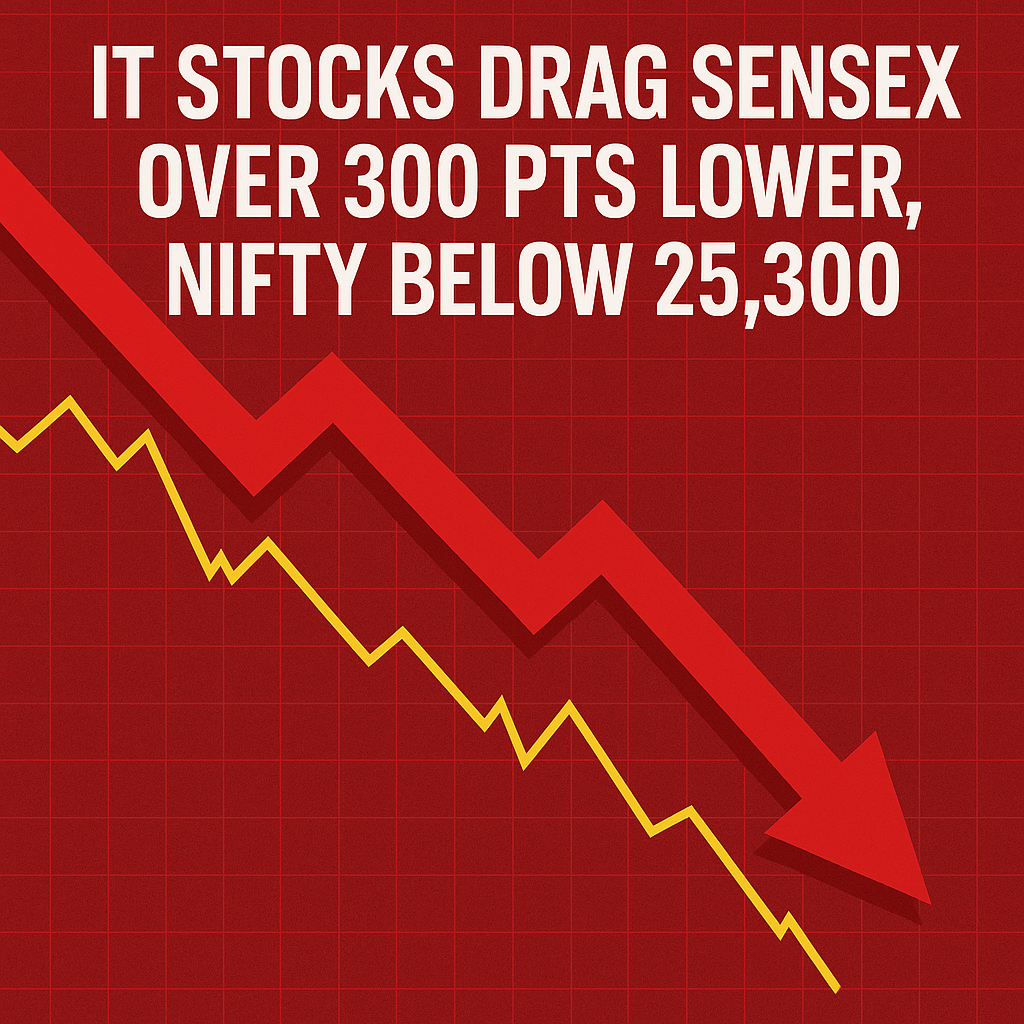
Weak Q1 Results and Tariffs Hit Markets
The major contributors to the decline of the Sensex were disappointing Q1 results, particularly from IT giant Tata Consultancy Services (TCS), which revealed muted earnings that put downward pressure on the Nifty IT index. The announcement of new U.S. tariffs on Canadian goods also created an overhang of uncertainty in global markets, raising concerns about potential trade wars and their effects on economic growth. This combination of weak corporate performance and international trade tensions has created a challenging environment for investors.
The overall sentiment in the market has turned cautious, with traders and analysts keeping a close eye on forthcoming earnings reports and geopolitical developments. As companies in various sectors prepare to release their financial results, the focus on performance will likely dictate market movements going into the next week.
IT Sector Outperforms: Winners and Losers
While the broader IT sector faced difficulties, it is still essential to highlight the winners and losers within it. TCS was not the only company reporting earnings; others such as Infosys and HCL Technologies also released their Q1 financial results. In this quarter, TCS’s disappointing performance led to a sell-off driven by investor sentiment. However, other IT firms showed resilience and even some growth, thereby helping the Nifty IT index not plummet as sharply as it could have.
In particular, companies that have focused on digital transformation and cloud offerings seem to be taking the lead, showcasing how rapid technological adaptations can help offset broader market declines. In contrast, firms still reliant on traditional revenue streams are likely to struggle in current conditions.
Glenmark Pharmaceuticals Bucks the Trend
In an otherwise declining market, Glenmark Pharmaceuticals stood out as a beacon of positivity, experiencing a significant stock surge following the announcement of a promising licensing agreement. Glenmark secured a deal for a new medication, which boosted investor confidence and showcased the potential for future revenue.
The pharmaceutical sector increasingly plays a crucial role, particularly as health concerns remain a priority globally. Companies like Glenmark are benefitting from the increased focus on healthcare innovation and a push for more effective treatments, underscoring the potential for growth even amidst broader market downturns.
Expert Strategies Amid Market Downturn
In light of the current market conditions characterized by the decline of IT stocks and geopolitical uncertainty, market experts advise investors to adopt a strategic approach. Here are some strategies to consider:
1. Focus on Fairly Valued Stocks: Invest in companies that are trading at reasonable valuations with solid earnings outlooks. These stocks are likely to weather the downturn more effectively.
2. Diversification: Spread investments across various sectors to mitigate risks linked to singular market movements.
3. Long-term Perspective: Investors should maintain a long-term perspective rather than reacting impulsively to short-term fluctuations.
4. Monitoring Economic Indicators: Keep an eye on economic indicators and corporate earnings reports, which can provide guidance on potential market movements.
By following these strategies, investors can position themselves to navigate through current market volatility and identify opportunities amid the challenges.
What’s Next for Indian Equities?
Looking ahead, the future of Indian equities largely depends on the forthcoming earnings results from major companies, which can either stabilize confidence within the market or exacerbate the ongoing downturn. Additionally, any movements in U.S. trade policies or tariffs will undoubtedly influence investor sentiment.
Market watchers anticipate volatility in the short term, especially as global economic factors remain uncertain. However, the successful adaptation of companies to changing market conditions can lead to recovery and growth.
Investors should remain vigilant, informed, and ready to refine their strategies based on ongoing developments in the Indian equity market. While current conditions are challenging, they may also present unique opportunities for those prepared to identify them.
—
FAQs
How did TCS’s Q1 results affect the IT sector?
TCS’s muted Q1 results significantly impacted the IT sector by undermining investor confidence, leading to a sell-off that affected the entire Nifty IT index. The company’s disappointing figures highlighted challenges within the sector, causing investors to reevaluate their positions.
Why did Glenmark Pharmaceuticals’ shares surge amidst a market downturn?
Glenmark Pharmaceuticals’ shares surged due to a positive licensing agreement that raised expectations for future revenue. Unlike many firms facing declines, Glenmark showcased growth potential in the pharmaceutical industry, reflecting strong demand for health-related innovations.
What strategies are recommended for investors during current market volatility?
Investors are advised to focus on fairly valued stocks, diversify their portfolios, maintain a long-term perspective, and closely monitor economic indicators. This strategic approach can help minimize risks associated with market downturns and position portfolios for recovery.
—
By staying informed and adopting effective strategies, investors can better navigate the complexities of the current market landscape and position themselves for potential returns in the future.
